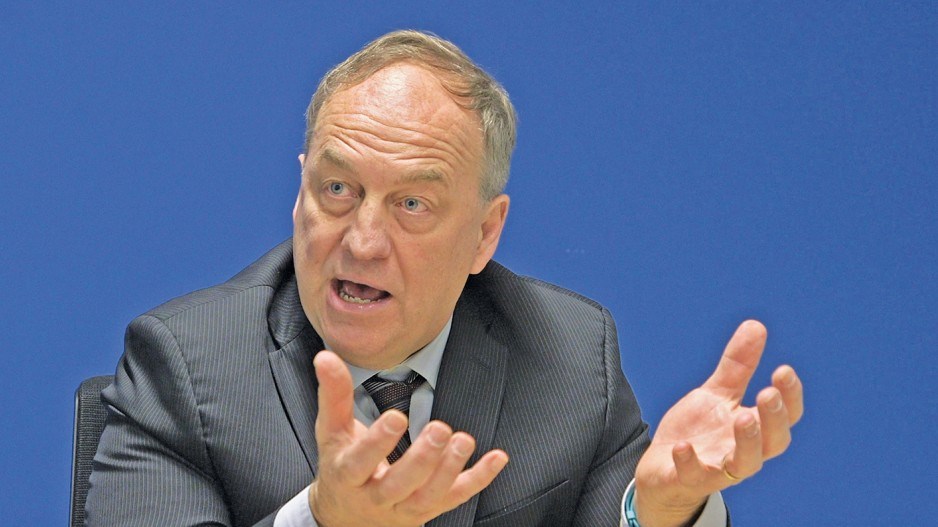A Green government would radically overhaul the taxation system in B.C. to make it simpler and more progressive, and would increase spending by an average of $3 billion annually, producing a surplus budget in the fourth year of its mandate, according to its newly released platform.
The BC Green Party has been releasing planks in recent weeks, but only released its full platform Monday, April 24.
“Our platform highlights the fundamental differences between us and the other parties,” said Green Party Leader Andrew Weaver. “Both the B.C. Liberals and the B.C. NDP are more focused on advancing short term election strategies than they are on advancing a vision for the province.
"Our platform offers an ambitious plan to position British Columbia for success at the forefront of the emerging economy, through promoting sustainable business development and innovation, making historic investments in education, and modernizing income security."
Many of the tax reforms were previously announced, including a plan to roll MSP premiums into payroll and income taxes and raise the carbon tax by $10 per tonne per year, starting in 2018.
The Green platform’s budget shows that the most significant increases in revenue would come from carbon taxes, the payroll and income taxes that would replace MSP premiums and taxes designed to curb real estate speculation.
Carbon tax revenue would more than triple between the second and fourth years of the Green’s four-year budget projections – from $265 million in 2018-2019 to $865 million in 2020-2021.
Payroll and incomes taxes replacing the MSP would rise from $210 million in 2017-2018, to $810 million in 2018-2019, and generally stay in that range for the next two years. A host of taxes designed to curb real estate speculation would raise $250 million in revenue in the first year, then double to $500 million in the second year.
The Greens’ plan would see provincial government spending increase $1.2 billion in the first year (2017-2018), $3.3 billion in the second, $4.1 billion in the third and $4.4 billion in the fourth year.
That averages out to a 6% increase in spending over what is currently proposed in the Liberal government’s most recent budget, the platform states.
“Even with this additional expenditure, B.C. will continue to have the lowest public sector funding of any province,” the platform states.
The Green budget projects a modest surplus in the first year, deficits in the second and third years, and a surplus of $195 million by the fourth year (2020-2021).
The Greens propose a fundamental overhaul of the tax system, starting with a 1% increase to income taxes for those earning $108,460 or more in the 2017-2018 budget year, and a 3% increase by 2020-2021. The Greens would also increase the corporate tax rate to 12% and get rid of “boutique” tax breaks.
The party plans to raise a substantial amount of tax revenue through various real estate related tax policies, such as a speculators tax, a doubling of the foreign buyers tax on real estate and a sliding scale property transfer tax that goes from zero up to 12% on homes valued at $3 million or more.
The biggest spending increase are in “lifelong learning” ($787 million in the first year and $2 billion by Year Two) and in “income security” – $109 million in the first year and $533 million in the second, rising to $848 million in the fourth year.
As for climate change policies, the Green Party would commit to the recommendations of the Liberal government’s Climate Leadership Team on greenhouse gas reduction targets. The Greens would aim for a 40% reduction in GHGs from 2007 by 2030.
To hit those targets, the Greens are mulling policies that could include distance-based car insurance, and congestion and road pricing that favour zero emission vehicles (no bridge tolls, free parking and half-price ferry fees for electric cars, for example).




